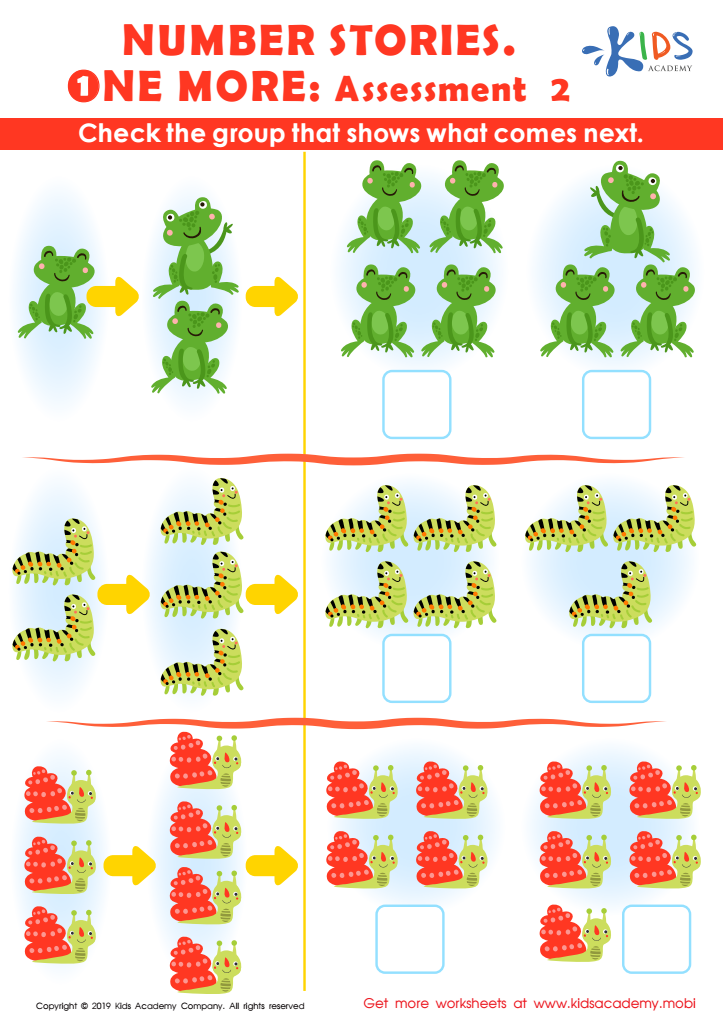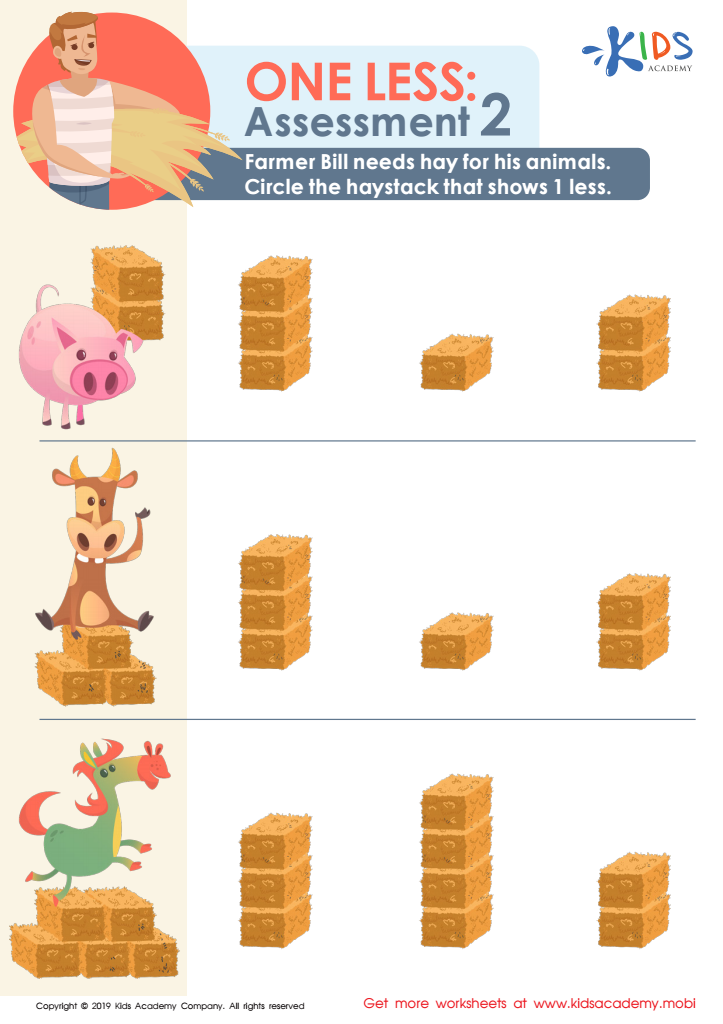Counting worksheets activities
2 filtered results
-
From - To


Number Stories One More – Assessment 2 Worksheet


One Less: Assessment 2 Worksheet
Counting worksheets activities are a cornerstone in the foundational development of young learners' mathematical skills. These targeted exercises are not only essential in introducing the basic concept of numbers but also play a crucial role in developing a child's ability to think logically and solve problems efficiently. Understandably, incorporating counting worksheets activities into a child's daily learning routine offers numerous benefits that extend beyond mere numerical recognition.
First and foremost, counting worksheets activities are instrumental in enhancing a child's numerical fluency. By repetitively engaging with numbers through varied and interactive worksheets, children solidify their understanding of the sequence of numbers and improve their ability to recall and recognize numbers swiftly. This fluency is the bedrock upon which more advanced mathematical concepts are built, making early proficiency in counting an invaluable asset.
Additionally, these activities are uniquely positioned to improve a child’s fine motor skills. As they navigate through the worksheets, marking numbers, and completing patterns, children develop better hand-eye coordination and pencil control. This not only aids in their mathematical journey but also in other academic areas that require precise motor control, such as writing.
Moreover, counting worksheets activities foster independent learning. Through structured yet engaging worksheets, children are encouraged to solve problems on their own, promoting a sense of achievement and autonomy. This boosts their confidence in their abilities and encourages a positive attitude towards learning and tackling challenges.
Furthermore, these activities are incredibly versatile, allowing for customization to meet the individual needs of each learner. Whether a child is just beginning to understand the concept of numbers or is advancing towards more complex counting, worksheets can be tailored to challenge their skills appropriately, ensuring continuous growth and learning.
In conclusion, counting worksheets activities are a fundamental tool in the educational development of young minds. They not only lay the groundwork for mathematical literacy but also contribute to the overall cognitive and motor development of children, making them an indispensable part of early education.
 Assign to the classroom
Assign to the classroom












